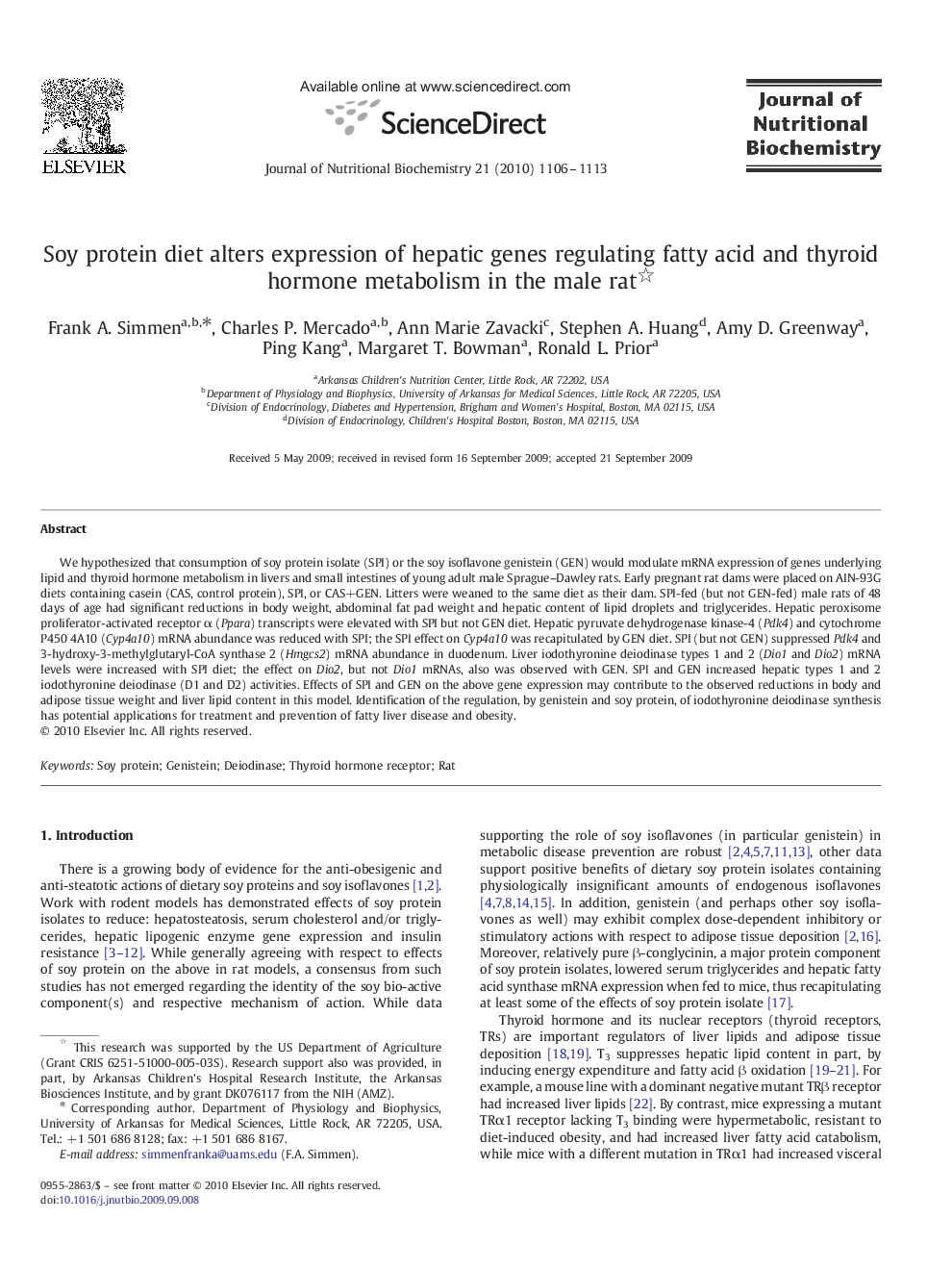| Article ID | Journal | Published Year | Pages | File Type |
|---|---|---|---|---|
| 1989992 | The Journal of Nutritional Biochemistry | 2010 | 8 Pages |
We hypothesized that consumption of soy protein isolate (SPI) or the soy isoflavone genistein (GEN) would modulate mRNA expression of genes underlying lipid and thyroid hormone metabolism in livers and small intestines of young adult male Sprague–Dawley rats. Early pregnant rat dams were placed on AIN-93G diets containing casein (CAS, control protein), SPI, or CAS+GEN. Litters were weaned to the same diet as their dam. SPI-fed (but not GEN-fed) male rats of 48 days of age had significant reductions in body weight, abdominal fat pad weight and hepatic content of lipid droplets and triglycerides. Hepatic peroxisome proliferator-activated receptor α (Ppara) transcripts were elevated with SPI but not GEN diet. Hepatic pyruvate dehydrogenase kinase-4 (Pdk4) and cytochrome P450 4A10 (Cyp4a10) mRNA abundance was reduced with SPI; the SPI effect on Cyp4a10 was recapitulated by GEN diet. SPI (but not GEN) suppressed Pdk4 and 3-hydroxy-3-methylglutaryl-CoA synthase 2 (Hmgcs2) mRNA abundance in duodenum. Liver iodothyronine deiodinase types 1 and 2 (Dio1 and Dio2) mRNA levels were increased with SPI diet; the effect on Dio2, but not Dio1 mRNAs, also was observed with GEN. SPI and GEN increased hepatic types 1 and 2 iodothyronine deiodinase (D1 and D2) activities. Effects of SPI and GEN on the above gene expression may contribute to the observed reductions in body and adipose tissue weight and liver lipid content in this model. Identification of the regulation, by genistein and soy protein, of iodothyronine deiodinase synthesis has potential applications for treatment and prevention of fatty liver disease and obesity.
